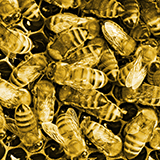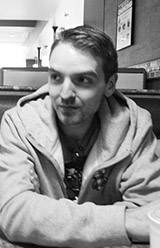

![]()
::: postdoc fellowships
::: senior fellowships
::: resident fellowships
::: associateships
![]()
being here
::: visiting
::: the last donut
::: photo album
::: center home >> people >> postdoctoral fellows >> stuart |
||||
| Michael Stuart I’m interested in the cognitive power of fiction in science. I found in my dissertation (University of Toronto, 2015. Panel: Yiftach Fehige, James R. Brown, Joseph Berkovitz, Catherine Elgin) that many historically important thought experiments, including Maxwell’s demon, Einstein and Bohr’s clock in the box, Einstein’s elevator, Heisenberg’s microscope and Darwin’s vertebrate eye, all primarily increase scientific understanding as opposed to knowledge. (Knowledge is often produced when that understanding is applied, but this is a separate achievement). I argued that thought experiments provide understanding by increasing the empirical significance of theoretical elements including principles, laws and models, which they do by having us “try out” in our minds different connections to more familiar concepts, experiences and abilities. This process is experimental but also interpretive; we consider and amend different possible mappings from theory to reality in order to settle on provisional meanings for theoretical elements. This is important because provisional meanings are cognitively necessary for theory-use, including prediction and explanation.
On-Going and Recent Work: 2017 Update This year I was happy to publish “Norton and the Logic of Thought Experiments" in Epistemologia, “Imagination: A Sine Qua Non of Science” in the Croatian Journal of Philosophy, and two chapters in The Routledge Companion to Thought Experiments (“Thought Experiments: The State of the Art,” and “How Thought Experiments Increase Understanding"). An on-going collaboration with Markus Kneer and Hanna Kim on imaginative resistance will be published soon in F. Cova and S. Rénhault (eds.), Advances in Experimental Philosophy of Aesthetics. I also have a chapter forthcoming in Scientific Discovery in the Social Sciences entitled “Machine Discovery Requires an Imagination Algorithm.” I've given talks this year at the University of Macerata, the University of Graz, the London School of Economics, the University of Iceland, the Nordic Network for Philosophy of Science in Copenhagen, and the Inter-University Centre in Dubrovnik. I will be giving a few more talks at the University of Leeds, the University of Geneva, and the UK Integrated HPS workshop in Nottingham. I will also be writing a post for The Junkyard, a new blog dedicated to the study of imagination. Finally, with Fiora Salis I will be organizing a conference to bring aesthetics into discussion with philosophy of science called "Bridging the Gap: Scientific Imagination Meets Aesthetic Imagination." For this we've been awarded an Aristotelian Society conference grant, a Mind Association major conference grant, and a British Society of Aesthetics small conference grant. 2016 Update Following a successful year at the Center I am taking up a two-year fellowship at the Centre for Philosophy of Natural and Social Sciences, at the London School of Economics. I will be funded by the Social Sciences and Humanities Research Council of Canada . While at the Center I published “Taming Theory with Thought Experiments: Understanding and Scientific Progress.” in Studies in the History and Philosophy of Science (58: 24-33). I've given six talks, and am just about finished putting the final touches on the forthcoming Routledge Companion to Thought Experiments, which I'm co-editing with Jim Brown and Yiftach Fehige. I also have several papers forthcoming which can be found on my website: michaeltstuart.com.
|
|
|||
